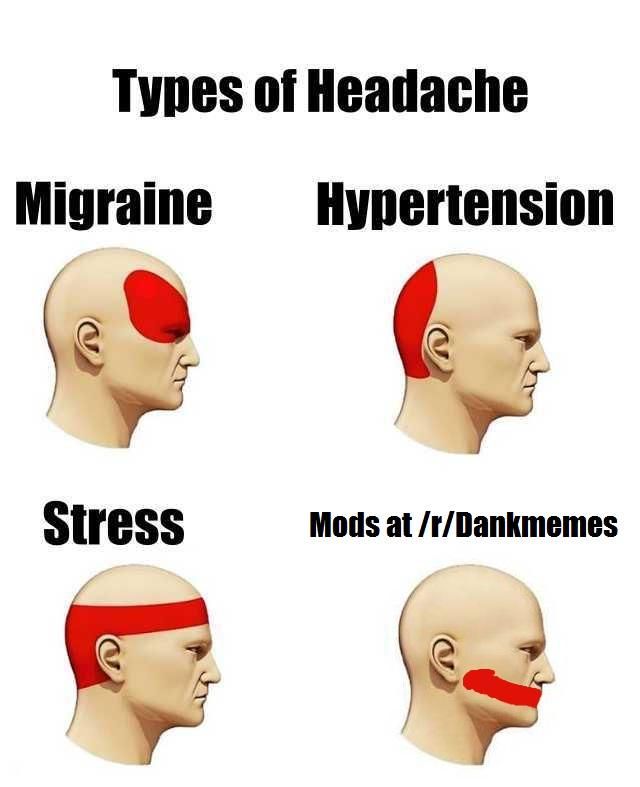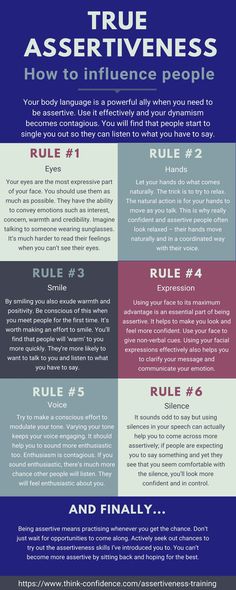How to deal with betrayal of trust
Signs and How to Start Healing
If a parent or romantic partner violates your trust, you may experience lingering betrayal trauma. This type of trauma may affect your self-esteem, emotional health, and relationships with others, but support from a therapist can help you begin to heal.
If someone close to you has ever broken your trust, you’ve probably felt the sting of betrayal. This pain can leave deep wounds.
Any type of betrayal can cause emotional distress, but you might experience lingering trauma when someone you depend on to respect your needs and generally help safeguard your well-being violates the trust you’ve placed in them.
Betrayal trauma typically refers to the lingering pain and turmoil experienced after:
- betrayal by a parent or other childhood caregiver
- betrayal by a romantic partner
When you rely on someone for basic needs as well as love and protection, you might accept a betrayal in order to ensure your own safety.
You might also find yourself accepting the possibility of future betrayals — something that can begin to degrade self-esteem, emotional well-being, and the ability to form attachments with others.
Betrayal trauma was first introduced as a concept by psychologist Jennifer Freyd in 1991. She described it as a specific trauma that happens in key social relationships where the betrayed person needs to maintain a relationship with the betrayer for support or protection.
Betrayal trauma theory suggests harm within attachment relationships, like relationships between a parent and child or between romantic partners, can cause lasting trauma.
People often respond to betrayal by pulling away from the person who betrayed them. But when you depend on someone to meet certain needs, this response might not be feasible.
Children, for example, depend on parents to meet emotional needs along with food, shelter, and safety needs.
Similarly, someone who lacks financial or social resources outside of their relationship may fear that acknowledging the betrayal and leaving the relationship could put their safety at risk.
This fear of the potential consequences of acknowledging the betrayal might prompt the betrayed person to bury the trauma. As a result, they may not fully process the betrayal or remember it correctly, especially if it happens in childhood.
Relation to attachment theory
Though experts originally applied the concept of betrayal trauma to children betrayed by caregivers, it became clear that this type of trauma could also happen in other relationships.
Let’s take a step back to the basics of attachment theory — attachment comes before betrayal, after all.
Your earliest childhood relationships are so significant because they lay the groundwork for later relationships. When these bonds are strong and secure, they pave the way toward secure attachments in adulthood.
Insecure bonds, on the other hand, often lead to shaky or troubled relationships.
A parent bringing a child into the world has a responsibility to protect and care for that child.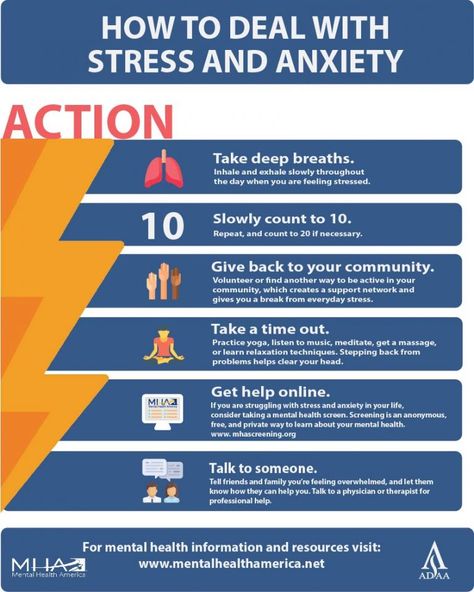 This responsibility forms an unspoken agreement between parent and child. The child looks to the parent to prioritize their well-being, and they typically trust their parents entirely — until the parent lets them down.
This responsibility forms an unspoken agreement between parent and child. The child looks to the parent to prioritize their well-being, and they typically trust their parents entirely — until the parent lets them down.
In a romantic relationship, you might not need your partner to survive, but you probably depend on them for love, emotional support, and companionship.
These relationships also rest on agreements — the boundaries defining the relationship. Partners in a monogamous relationship, for example, generally have some shared understanding of what defines cheating and agree to trust each other not to cheat.
A partner who cheats betrays the terms of that understanding.
The trauma of betrayal can affect physical and mental health, but the specific effects can vary depending on the type of trauma. Keep in mind that not everyone experiences trauma in the same way, either.
Childhood trauma
The effects of betrayal can show up shortly after the trauma and persist into adulthood.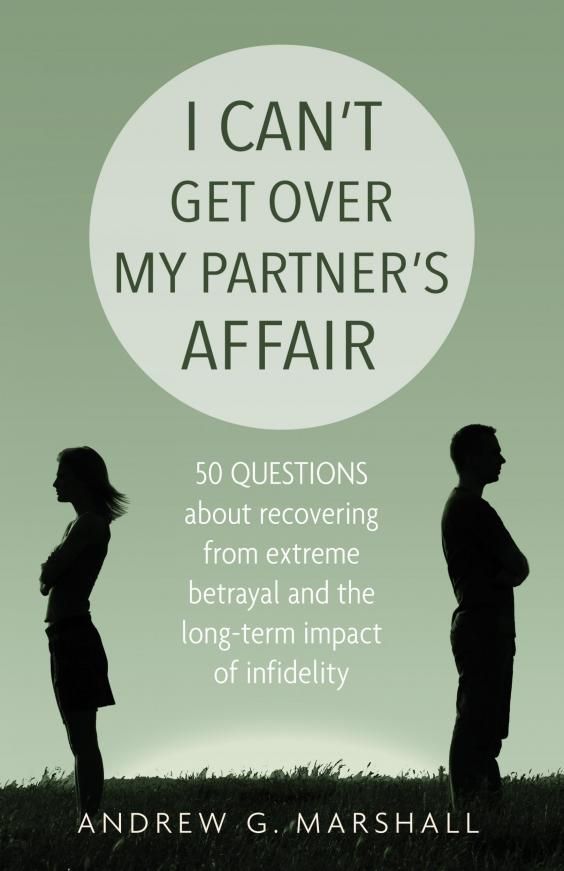
Key signs include:
- trouble recognizing, expressing, or managing emotions
- anxiety, depression, and other mental health symptoms
- nightmares
- physical pain or stomach distress
- panic attacks
- thoughts of suicide
- difficulty trusting others
- attachment issues
- eating disorders
- substance use
Children who experience betrayal may also end up dissociating, or detaching from reality to avoid memories of the abuse.
If your parent fails to protect you, this betrayal can so deeply contradict what you expect that you end up blocking it in order to maintain the attachment. Blinding yourself to the betrayal and your fear of future betrayals helps you survive in a relationship you believe you can’t escape.
Your ability to “forget” becomes a coping mechanism. Yet while dissociation might help you cope with the trauma, it can also affect your memory and sense of self.
Infidelity trauma
Betrayal in a romantic relationship usually takes the form of infidelity, though other types of betrayal, such as financial betrayal, can also provoke a trauma response.
The discovery of infidelity often leads to:
- loss of self-esteem and self-worth
- numbness
- anger
- guilt
- difficulty controlling emotions
- intrusive thoughts about affair details
- loss of faith in others
- suspicion and hypervigilance
- depression, anxiety, and other mental health symptoms
- physical symptoms, including insomnia, pain, and stomach distress
Betrayal blindness can also happen in the context of romantic relationships.
Maybe you don’t exactly need your partner to survive, but you might still feel unable to leave, for any number of reasons — children, lack of options, no income of your own.
Relationships also fulfill important belonging and social connection needs, and a betrayal can leave you wondering how you’ll get those needs met in the future.
Instead of staying alert to signs of cheating, you might choose (often unconsciously) to ignore or overlook clues in order to safeguard your relationship and protect mental health.
After a betrayal in a romantic relationship, you might find yourself dealing with ongoing trust issues and self-doubt. Even if you choose to give your partner another chance, it might take months, even years, to successfully rebuild trust.
If you dealt with childhood trauma by dissociating or blocking out what happened, your memories will eventually resurface, especially if something similar happens to trigger their return. Blocking them again may not be an option. Even if you do manage to shove your memories away again, this won’t help you heal.
The route to recovery may not look the same for everyone, but these strategies can help you take the first steps.
Acknowledge instead of avoid
Healing often requires you to first come to terms with what happened.
When you don’t address the betrayal, your turmoil can spill over to other areas of your life. You can’t erase it, so no matter how carefully you try to suppress what happened, you might catch yourself replaying those memories when you’re with friends, caring for your children, or driving to work.
Leaning into a trauma like infidelity might seem too painful to even consider. In reality, though, acknowledging it allows you to begin exploring the reasons behind it, which can help kick off the healing process.
Instead of getting trapped in an unrelenting cycle of self-doubt and self-criticism, you can begin coming to terms with underlying relationship issues, such as lack of communication or intimacy, and explore ways to resolve them.
Note: This doesn’t mean the blame for the betrayal lies with you. Choosing to cheat is an unhealthy response to relationship problems.
Practice accepting difficult emotions
Plenty of unpleasant emotions can show up in the aftermath of betrayal. It’s common to feel humiliated or ashamed. You might also feel furious, vengeful, sick, or grieved. Naturally, you might find yourself trying to avoid this distress by denying or trying to block what happened.
Although hiding from painful or upsetting emotions might seem easy and safe, avoiding or masking your emotions can make it more difficult to regulate them.
Putting a name to specific emotions — anger, regret, sadness, loss — can help you begin navigating them more effectively.
Recognizing exactly what you’re dealing with can make it easier and less frightening to sit with those emotions and slowly increase your awareness of them. Greater emotional awareness, in turn, can help you begin identifying strategies to cope with those feelings more productively.
Turn to others for support
Opening up about betrayal isn’t always easy. You may not want to talk about childhood trauma or your partner’s affair. Plus, once someone has betrayed your trust, you might have a hard time trusting anyone at all.
Yet people need emotional support, especially during stressful times. Your loved ones may not need to know exactly what happened, but they can still offer companionship when you don’t want to be alone and distraction when you can’t get away from your looping thoughts.
It’s perfectly OK to politely let your friends know when you’d like guidance and when you’re just looking to share feelings without any well-intentioned advice.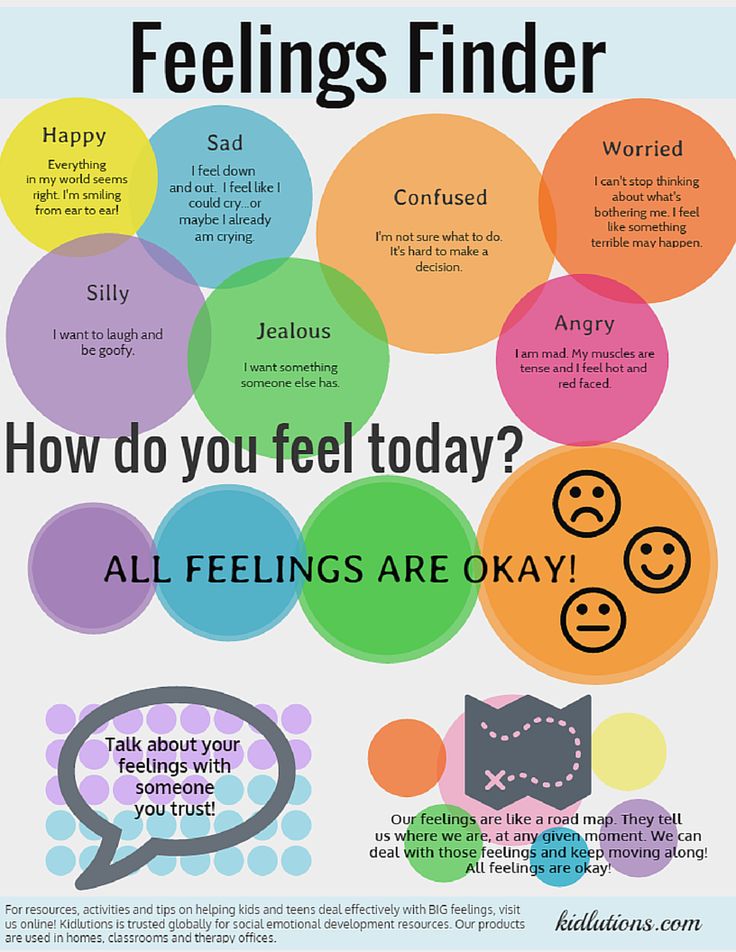
You may want to step carefully when discussing a partner’s cheating with mutual friends. Gossip can make a difficult situation even more painful, so you may want to save the in-depth details for your most trusted loved ones.
Focus on what you need
After a partner cheats, most people need some time to decide whether to end the relationship or try repairing the damage. This isn’t something you should feel pressured to decide right away. A relationship therapist can offer support and guidance as you consider whether you believe rebuilding trust is possible.
As you begin to recover from the initial shock of trauma, pay extra attention to your needs:
- Instead of lying awake cycling through distressing thoughts, try aromatherapy, a warm bath, or soothing music to relax and improve your sleep.
- Instead of skipping meals when you feel nauseous or have no appetite, snack on energy-boosting foods and keep yourself hydrated.
- Favorite movies and familiar TV shows can calm and comfort you, but try to mix in some other hobbies, too.
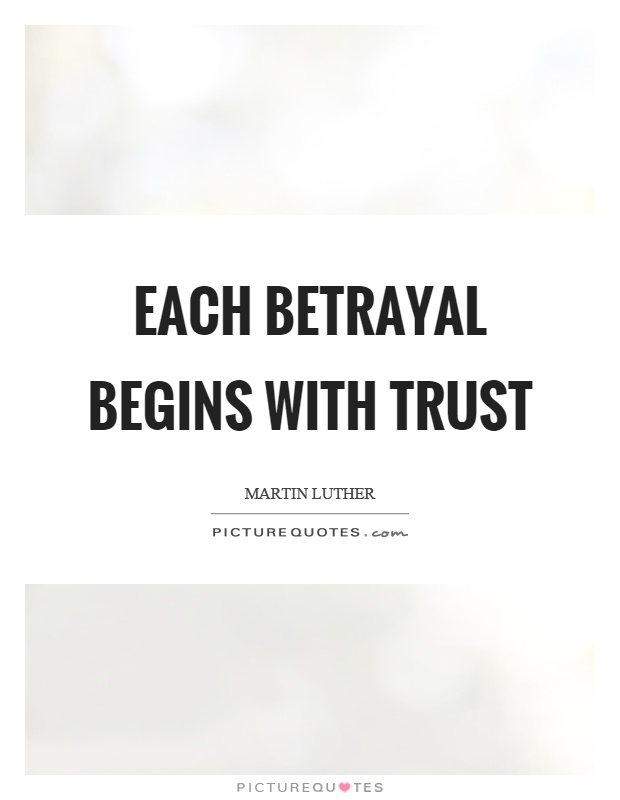 Yoga, walking, reading, or gardening all offer mood-boosting benefits.
Yoga, walking, reading, or gardening all offer mood-boosting benefits.
Trauma can be hard to confront on your own. Professional support can make a big difference in the healing process. In therapy, you can begin to acknowledge and work through a betrayal before it causes lingering distress.
Therapists trained to work with survivors of abuse and neglect can also help with unpacking long-lasting effects of childhood trauma. If you have attachment issues, for example, a therapist might help you identify underlying causes of insecure attachment and explore strategies for building more secure relationships.
Most mental health experts recommend some form of couples therapy when attempting to heal a relationship after infidelity.
It’s also important, however, to work with a therapist on your own to:
- examine any feelings of self-blame
- work to rebuild self-esteem
- learn healthy strategies for coping with difficult emotions
When someone you love and trust does something to shatter the foundations of your relationship, the resulting trauma can be severe.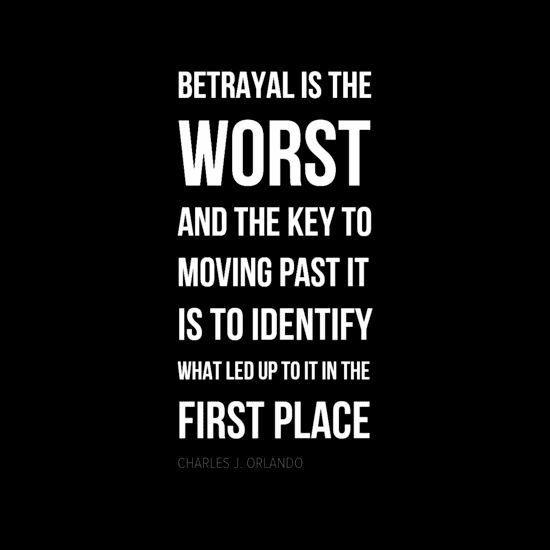
You can heal, though, and you might even come back stronger as you rebuild your sense of self and gain tools for developing healthy relationships. Ready to take the first steps? A therapist can offer guidance along the way.
Crystal Raypole has previously worked as a writer and editor for GoodTherapy. Her fields of interest include Asian languages and literature, Japanese translation, cooking, natural sciences, sex positivity, and mental health. In particular, she’s committed to helping decrease stigma around mental health issues.
Signs and How to Start Healing
If a parent or romantic partner violates your trust, you may experience lingering betrayal trauma. This type of trauma may affect your self-esteem, emotional health, and relationships with others, but support from a therapist can help you begin to heal.
If someone close to you has ever broken your trust, you’ve probably felt the sting of betrayal. This pain can leave deep wounds.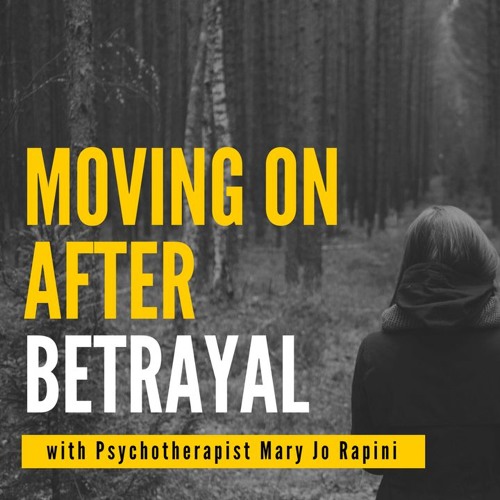
Any type of betrayal can cause emotional distress, but you might experience lingering trauma when someone you depend on to respect your needs and generally help safeguard your well-being violates the trust you’ve placed in them.
Betrayal trauma typically refers to the lingering pain and turmoil experienced after:
- betrayal by a parent or other childhood caregiver
- betrayal by a romantic partner
When you rely on someone for basic needs as well as love and protection, you might accept a betrayal in order to ensure your own safety.
You might also find yourself accepting the possibility of future betrayals — something that can begin to degrade self-esteem, emotional well-being, and the ability to form attachments with others.
Betrayal trauma was first introduced as a concept by psychologist Jennifer Freyd in 1991. She described it as a specific trauma that happens in key social relationships where the betrayed person needs to maintain a relationship with the betrayer for support or protection.
Betrayal trauma theory suggests harm within attachment relationships, like relationships between a parent and child or between romantic partners, can cause lasting trauma.
People often respond to betrayal by pulling away from the person who betrayed them. But when you depend on someone to meet certain needs, this response might not be feasible.
Children, for example, depend on parents to meet emotional needs along with food, shelter, and safety needs.
Similarly, someone who lacks financial or social resources outside of their relationship may fear that acknowledging the betrayal and leaving the relationship could put their safety at risk.
This fear of the potential consequences of acknowledging the betrayal might prompt the betrayed person to bury the trauma. As a result, they may not fully process the betrayal or remember it correctly, especially if it happens in childhood.
Relation to attachment theory
Though experts originally applied the concept of betrayal trauma to children betrayed by caregivers, it became clear that this type of trauma could also happen in other relationships.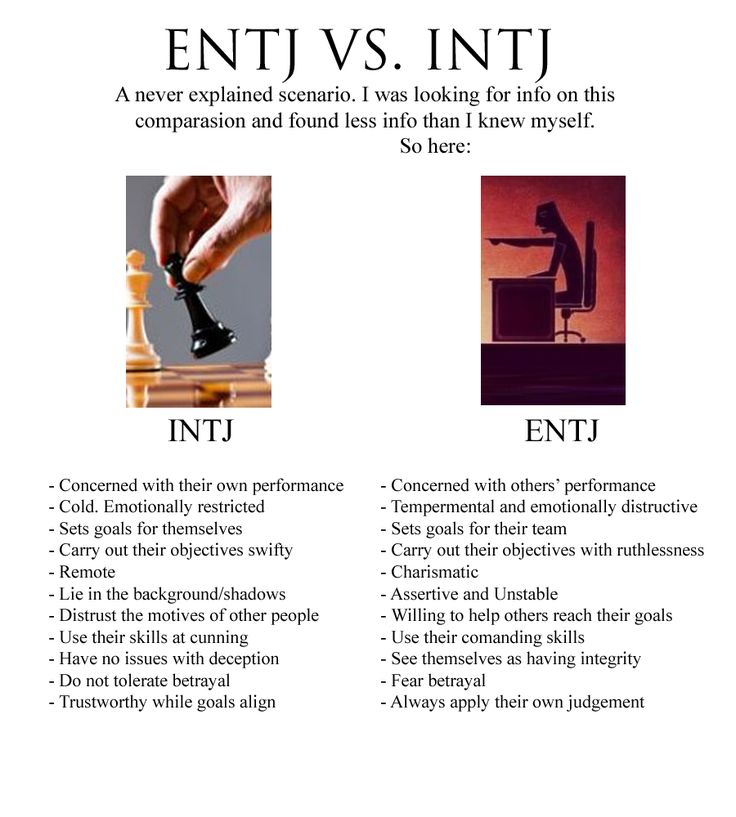
Let’s take a step back to the basics of attachment theory — attachment comes before betrayal, after all.
Your earliest childhood relationships are so significant because they lay the groundwork for later relationships. When these bonds are strong and secure, they pave the way toward secure attachments in adulthood.
Insecure bonds, on the other hand, often lead to shaky or troubled relationships.
A parent bringing a child into the world has a responsibility to protect and care for that child. This responsibility forms an unspoken agreement between parent and child. The child looks to the parent to prioritize their well-being, and they typically trust their parents entirely — until the parent lets them down.
In a romantic relationship, you might not need your partner to survive, but you probably depend on them for love, emotional support, and companionship.
These relationships also rest on agreements — the boundaries defining the relationship. Partners in a monogamous relationship, for example, generally have some shared understanding of what defines cheating and agree to trust each other not to cheat.
A partner who cheats betrays the terms of that understanding.
The trauma of betrayal can affect physical and mental health, but the specific effects can vary depending on the type of trauma. Keep in mind that not everyone experiences trauma in the same way, either.
Childhood trauma
The effects of betrayal can show up shortly after the trauma and persist into adulthood.
Key signs include:
- trouble recognizing, expressing, or managing emotions
- anxiety, depression, and other mental health symptoms
- nightmares
- physical pain or stomach distress
- panic attacks
- thoughts of suicide
- difficulty trusting others
- attachment issues
- eating disorders
- substance use
Children who experience betrayal may also end up dissociating, or detaching from reality to avoid memories of the abuse.
If your parent fails to protect you, this betrayal can so deeply contradict what you expect that you end up blocking it in order to maintain the attachment. Blinding yourself to the betrayal and your fear of future betrayals helps you survive in a relationship you believe you can’t escape.
Blinding yourself to the betrayal and your fear of future betrayals helps you survive in a relationship you believe you can’t escape.
Your ability to “forget” becomes a coping mechanism. Yet while dissociation might help you cope with the trauma, it can also affect your memory and sense of self.
Infidelity trauma
Betrayal in a romantic relationship usually takes the form of infidelity, though other types of betrayal, such as financial betrayal, can also provoke a trauma response.
The discovery of infidelity often leads to:
- loss of self-esteem and self-worth
- numbness
- anger
- guilt
- difficulty controlling emotions
- intrusive thoughts about affair details
- loss of faith in others
- suspicion and hypervigilance
- depression, anxiety, and other mental health symptoms
- physical symptoms, including insomnia, pain, and stomach distress
Betrayal blindness can also happen in the context of romantic relationships.
Maybe you don’t exactly need your partner to survive, but you might still feel unable to leave, for any number of reasons — children, lack of options, no income of your own.
Relationships also fulfill important belonging and social connection needs, and a betrayal can leave you wondering how you’ll get those needs met in the future.
Instead of staying alert to signs of cheating, you might choose (often unconsciously) to ignore or overlook clues in order to safeguard your relationship and protect mental health.
After a betrayal in a romantic relationship, you might find yourself dealing with ongoing trust issues and self-doubt. Even if you choose to give your partner another chance, it might take months, even years, to successfully rebuild trust.
If you dealt with childhood trauma by dissociating or blocking out what happened, your memories will eventually resurface, especially if something similar happens to trigger their return. Blocking them again may not be an option. Even if you do manage to shove your memories away again, this won’t help you heal.
Even if you do manage to shove your memories away again, this won’t help you heal.
The route to recovery may not look the same for everyone, but these strategies can help you take the first steps.
Acknowledge instead of avoid
Healing often requires you to first come to terms with what happened.
When you don’t address the betrayal, your turmoil can spill over to other areas of your life. You can’t erase it, so no matter how carefully you try to suppress what happened, you might catch yourself replaying those memories when you’re with friends, caring for your children, or driving to work.
Leaning into a trauma like infidelity might seem too painful to even consider. In reality, though, acknowledging it allows you to begin exploring the reasons behind it, which can help kick off the healing process.
Instead of getting trapped in an unrelenting cycle of self-doubt and self-criticism, you can begin coming to terms with underlying relationship issues, such as lack of communication or intimacy, and explore ways to resolve them.
Note: This doesn’t mean the blame for the betrayal lies with you. Choosing to cheat is an unhealthy response to relationship problems.
Practice accepting difficult emotions
Plenty of unpleasant emotions can show up in the aftermath of betrayal. It’s common to feel humiliated or ashamed. You might also feel furious, vengeful, sick, or grieved. Naturally, you might find yourself trying to avoid this distress by denying or trying to block what happened.
Although hiding from painful or upsetting emotions might seem easy and safe, avoiding or masking your emotions can make it more difficult to regulate them.
Putting a name to specific emotions — anger, regret, sadness, loss — can help you begin navigating them more effectively.
Recognizing exactly what you’re dealing with can make it easier and less frightening to sit with those emotions and slowly increase your awareness of them. Greater emotional awareness, in turn, can help you begin identifying strategies to cope with those feelings more productively.
Turn to others for support
Opening up about betrayal isn’t always easy. You may not want to talk about childhood trauma or your partner’s affair. Plus, once someone has betrayed your trust, you might have a hard time trusting anyone at all.
Yet people need emotional support, especially during stressful times. Your loved ones may not need to know exactly what happened, but they can still offer companionship when you don’t want to be alone and distraction when you can’t get away from your looping thoughts.
It’s perfectly OK to politely let your friends know when you’d like guidance and when you’re just looking to share feelings without any well-intentioned advice.
You may want to step carefully when discussing a partner’s cheating with mutual friends. Gossip can make a difficult situation even more painful, so you may want to save the in-depth details for your most trusted loved ones.
Focus on what you need
After a partner cheats, most people need some time to decide whether to end the relationship or try repairing the damage. This isn’t something you should feel pressured to decide right away. A relationship therapist can offer support and guidance as you consider whether you believe rebuilding trust is possible.
This isn’t something you should feel pressured to decide right away. A relationship therapist can offer support and guidance as you consider whether you believe rebuilding trust is possible.
As you begin to recover from the initial shock of trauma, pay extra attention to your needs:
- Instead of lying awake cycling through distressing thoughts, try aromatherapy, a warm bath, or soothing music to relax and improve your sleep.
- Instead of skipping meals when you feel nauseous or have no appetite, snack on energy-boosting foods and keep yourself hydrated.
- Favorite movies and familiar TV shows can calm and comfort you, but try to mix in some other hobbies, too. Yoga, walking, reading, or gardening all offer mood-boosting benefits.
Trauma can be hard to confront on your own. Professional support can make a big difference in the healing process. In therapy, you can begin to acknowledge and work through a betrayal before it causes lingering distress.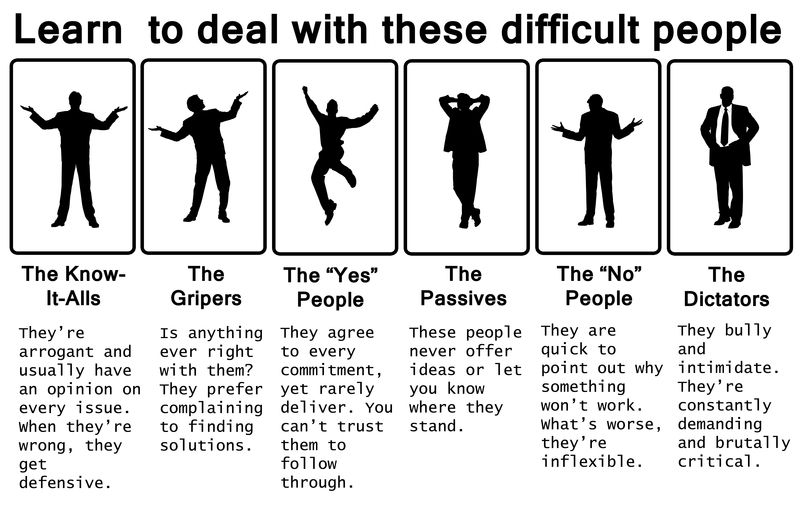
Therapists trained to work with survivors of abuse and neglect can also help with unpacking long-lasting effects of childhood trauma. If you have attachment issues, for example, a therapist might help you identify underlying causes of insecure attachment and explore strategies for building more secure relationships.
Most mental health experts recommend some form of couples therapy when attempting to heal a relationship after infidelity.
It’s also important, however, to work with a therapist on your own to:
- examine any feelings of self-blame
- work to rebuild self-esteem
- learn healthy strategies for coping with difficult emotions
When someone you love and trust does something to shatter the foundations of your relationship, the resulting trauma can be severe.
You can heal, though, and you might even come back stronger as you rebuild your sense of self and gain tools for developing healthy relationships. Ready to take the first steps? A therapist can offer guidance along the way.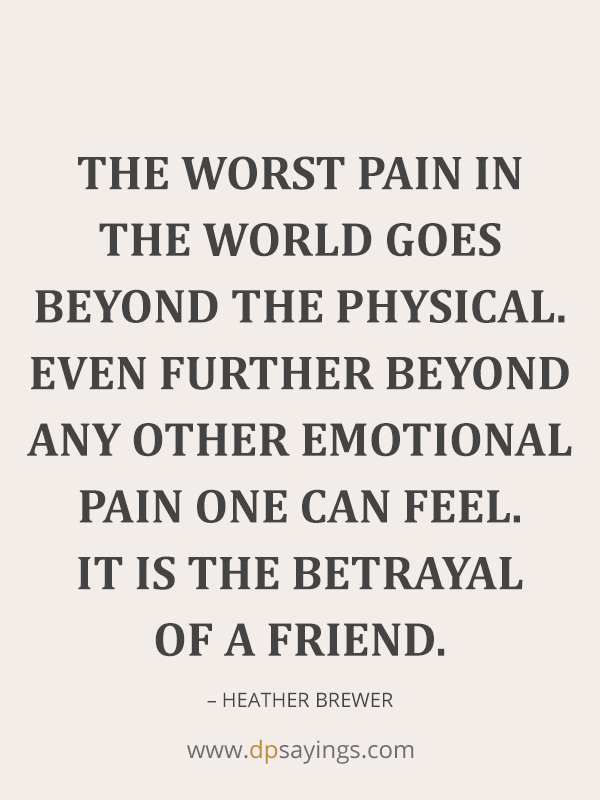
Crystal Raypole has previously worked as a writer and editor for GoodTherapy. Her fields of interest include Asian languages and literature, Japanese translation, cooking, natural sciences, sex positivity, and mental health. In particular, she’s committed to helping decrease stigma around mental health issues.
How to survive betrayal in a relationship: three tips from a psychologist
Trust is a fragile tool, and the ability to believe is the basis of a full-fledged interaction with the environment. Faced once with deceit or betrayal, you can completely lose faith in people. How to deal with disappointment, says Svetlana Mikheeva, specialist of the Moscow Psychological Assistance Service.
Speaking of betrayal in a relationship, most often people mean physical betrayal: it is this side of deceit that serves as a weighty argument for parting. At the same time, disrespect for a partner or emotional detachment seem to mean less, as if they are not taken into account, and therefore are not considered serious reasons for breaking up.
But deceit has many faces. Even the smallest lie can lead to significant consequences: a complete breakdown of trust in a couple, lack of understanding or conflicts with others.
Betrayal is a violation of fidelity to someone, failure to fulfill a duty to someone, leaving a friend, partner in trouble, as well as adultery or treason.
Some of the types of betrayal may be hidden behind the façade of outwardly prosperous relationships and seem not to be counted. This may happen because some actions, thoughts or feelings are not taken seriously by people, they are not given importance, or they simply prefer not to notice. At the same time, a feeling of insincerity in the relationship is still in the air, which is why claims against each other, dissatisfaction can grow in a couple, and quarrels flare up more often.
If any of the following are bothering you, discuss them with a partner. This way you will clarify your relations, review them and change something:
- failure to fulfill agreements, promises;
- lack of respect, criticality, negative assessment, negative comparison;
- emotional coldness, alienation, fading of interest, attraction;
- insincerity (lie), concealment or suppression of information, association with another against a partner;
- emotional betrayal, low loyalty, superficiality of relationships.

What to do if you are faced with betrayal
- This requires courage and honesty both to yourself and to your partner.
- Find time and frankly discuss the situation, the negative feelings that have arisen in connection with it.
- Review your expectations and try to consider trade-offs together.
First of all, you need to deal with your feelings - to restore internal trust in yourself, and only then switch to the outside world - to relationships with other people. To do this, remember:
You are not fully responsible for the betrayal. There are at least two people involved in a relationship, so everyone contributes.
What happened does not make you worse, but shows that in the union the moment has come to clarify, change, transform something. Or there was someone nearby who is not worthy of your trust. There is reason to think: perhaps there was an excessive openness or, perhaps, naivety?
It is important to separate psychologically from the person who betrayed you this pain?”, “Is it possible to forgive and start trusting again?”. Often we evaluate other people, especially close ones, by ourselves. Listen to your feelings, feelings and honestly answer: can you forgive another in this particular situation? Yes, this is not easy, because close relationships involve deep interaction with a partner, involvement in his life, identification with him. We come together because of common interests and values, world views, goals and aspirations. Betrayal can show that the common plans were only an illusion.
Often we evaluate other people, especially close ones, by ourselves. Listen to your feelings, feelings and honestly answer: can you forgive another in this particular situation? Yes, this is not easy, because close relationships involve deep interaction with a partner, involvement in his life, identification with him. We come together because of common interests and values, world views, goals and aspirations. Betrayal can show that the common plans were only an illusion.
Be yourself under any circumstances
Do not let the ground be knocked out from under your feet, try to look for resource states, your points of support. If you were nevertheless betrayed, try answering the following questions:
- What lessons can be learned from what happened?
- How to prevent a recurrence of what happened in the future?
- Why did this situation arise in your life right now? With this person?
- What vulnerable aspects of your personality were highlighted?
- What meaning does this situation have for you?
Betrayal is a certain stage, another challenge that makes us more responsible and stronger.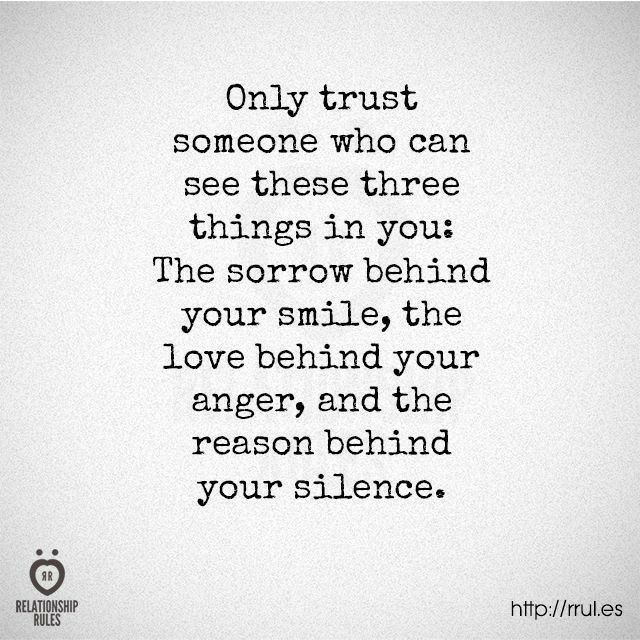 It teaches you not to give up, not to withdraw, but to recover, remaining yourself. It happens that the emotional pain inflicted by a loved one is so deep that only a specialist, a professional psychologist, can help. It is important not to close yourself off, not to be alone with experiences, but to discuss the origins of the origin of these feelings and possible scenarios for their living.
It teaches you not to give up, not to withdraw, but to recover, remaining yourself. It happens that the emotional pain inflicted by a loved one is so deep that only a specialist, a professional psychologist, can help. It is important not to close yourself off, not to be alone with experiences, but to discuss the origins of the origin of these feelings and possible scenarios for their living.
In the capital, specialist assistance can be obtained free of charge at appointments at the Moscow Service for Psychological Assistance to the Population. 24-hour psychological emergency telephone number - 051 (from a landline phone), +7 (495) 051 - from a mobile phone. The psychological support chat on the website www.msph.ru also works around the clock.
Source
Press service of the Moscow Department of Labor and Social Protection
How to live after the betrayal of a loved one
78 887
A man and a woman A man among people
After the betrayal of a loved one - especially if it took us by surprise - we are tormented by anxiety, anger, fear and longing. We are exhausted and cannot understand who can be trusted at all now.
We are exhausted and cannot understand who can be trusted at all now.
If a friend, colleague, relative, or loved one breaks a promise, the shock we feel when we learn about it sends us (body, mind, and soul) a signal that we are no longer safe. This is a severe wound that sometimes takes years to heal.
The betrayal of those with whom we have invested the most effort is the hardest to endure. It causes deep trauma for several reasons:
- We understand that for the person we trusted, his wants and needs turned out to be more important than ours.
- This is a deep shock in the body and psyche, leaving a deep imprint on all levels.
- The trust that underlay relationships with other people is now destroyed.
- We have reason to begin to doubt the correctness of our own decisions in other areas of life.
Betrayal activates the stress response and causes a cascade of physical, mental and emotional symptoms - adrenal and digestive problems, fatigue, confusion, fog and chaos in the head, depression, anger and rage, a feeling of deep humiliation.
Our self-confidence also suffers: we are tormented by a feeling of insignificance, we feel abandoned and rejected. We are terribly hurt that a loved one took advantage of us for their own purposes, without caring about us.
The problem is that if we try to deal with each symptom individually, healing may take longer than we would like. In addition, by focusing on the symptoms, we ignore the underlying causes of our condition. So there is no real healing.
Many people simply do not realize what a colossal blow the incident has dealt to their body, psyche and whole worldview. Betrayal survivors often try to treat each symptom individually because they are afraid that if they admit what is really going on inside them, people will judge them or become overly sorry.
But isolation from others only exacerbates the problems. In times like these, we need support more than ever. Without it, it will be very difficult to leave the experience behind and move on. After all, healing trauma, we re-learn to trust others, feel safe, love and open our hearts.
Debi Zilber, psychologist and author of The Resolute Woman: 4 Steps to Recover Body, Mind, and Life After a Crisis, conducted the study. Within its framework, it was found that for women, healing from betrayal usually takes five stages:
- Ignoring intuition. We choose to ignore the thought that something is wrong, focusing on the physical rather than the emotional.
- Betrayal itself. We are caught off guard and suffer.
- Survival. We think only about how to live this day. And tomorrow, another one.
- Attachment. We begin to adapt to a new life and reconsider our behavior.
- Revival. We are freed from experiences and gain a new view of the world.
Some people get stuck in the second and third stages for many weeks, months, years, or even for life. But the only way to rebuild yourself mentally, emotionally, physically, and spiritually is to go through all five stages at your own pace. And change the worldview to become stronger.
If we consider all the consequences of this trauma in our lives as part of one deep spiritual wound, we can gradually move away from pain and shock, starting the healing process.
On the physical level we will feel lighter, more alert, stronger and healthier
We will be able to sleep soundly and sleep well. And on a mental level, we will stop constantly tormenting ourselves with memories and thoughts about what happened, we will focus on positive thoughts and ideas. On an emotional level, we will become calmer and more confident.
But most importantly, having healed from trauma, we will no longer let the betrayal we experienced rule our lives. What happened will still remain one of the significant chapters of our life history, but it will no longer control its development.
We recognize that this experience has helped us a lot. We will learn to set clear personal boundaries and begin to surround ourselves with good people - those who support us, help us develop, but accept us as we are.


